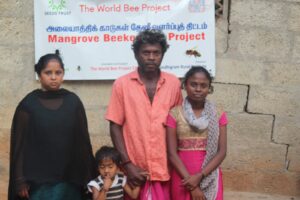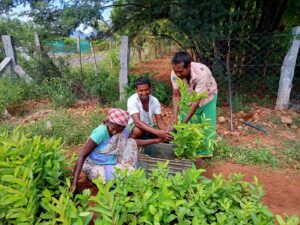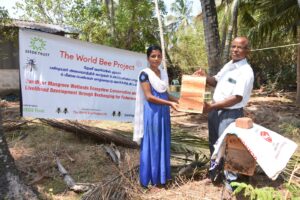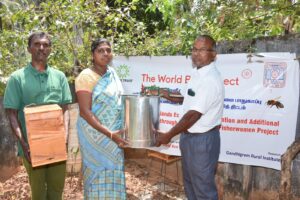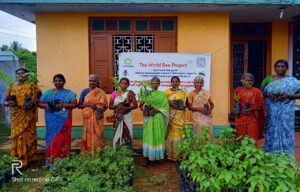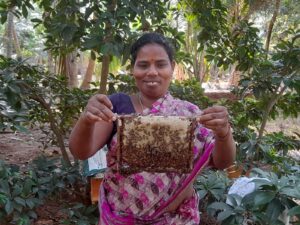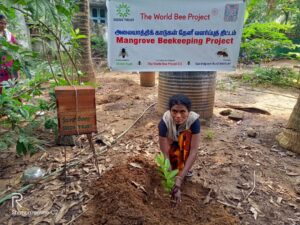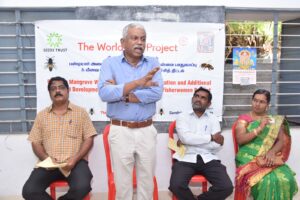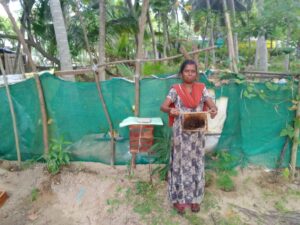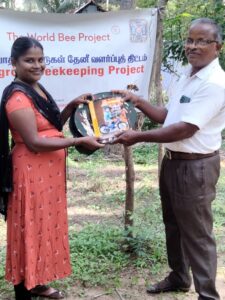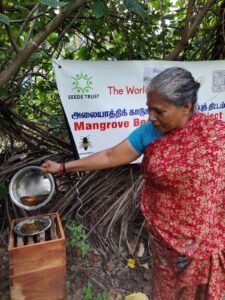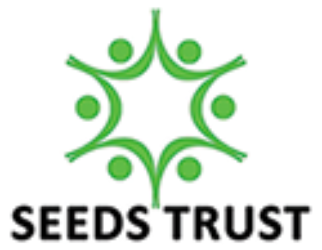THE BEE KEEPING PROJECT
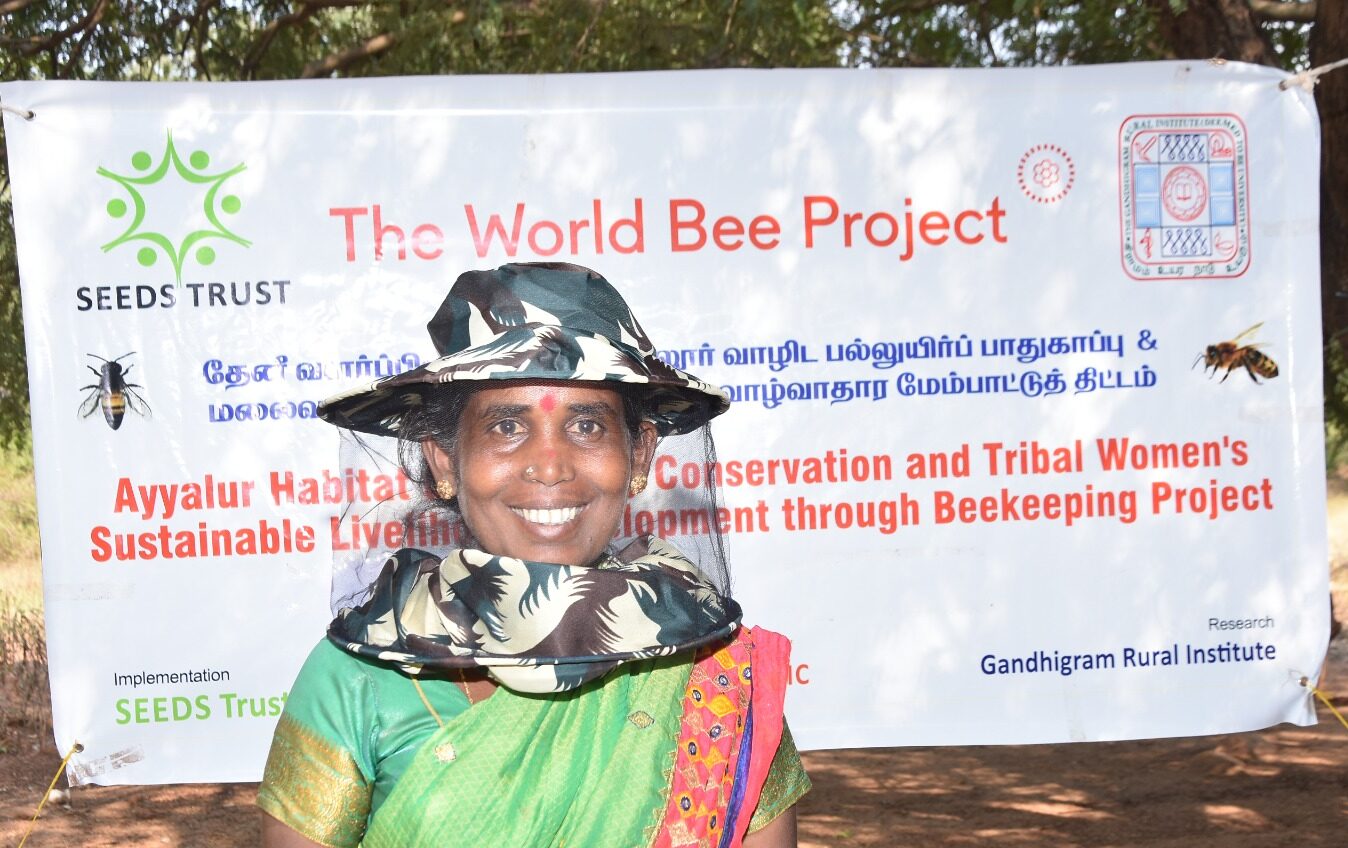
AYYALUR BEEKEEPING PROJECT
The World Bee Project (TWBP), UK has agreed to support a 3 year project (2022 -2024) for “Ayyalur Habitat Conservation and Tribal Women`s Sustainable Livelihood Development through Beekeeping” in 20 villages in the Ayyalur landscape. The project aims at improving livelihood of 40 rural women, through homestead honey production.
The project also envisages a research component for productivity enhancement of agricultural crops through bee pollination. The project will ensure sustainable resource use and conservation.
The project activities are planned for 3 years.
• 20 villages will be selected each year.
• 40 tribal women will be selected for the activities from these 20 villages, covering 120 tribal women in 3 years
• Each women will be provided with 5 beehives.
• 600 beehives with accessories will be distributed in 3 years.
• 6000 plants with nectar yielding flowers will be planted (@50 plants per beneficiary x 40 women per year by distributing 2000 seedlings per year).
• A bee keeper’s federation and Excellence centre for bee keeping will be started.
Project Achievements (January 2022 to December 2022)
1. Awareness programmes about the importance of biodiversity, ill effects of degrading ecosystem, the importance of honeybee in biodiversity conservation and as a source of livelihood were created in all the 20 villages through group meetings.
2. The orientation meeting for the staff of this project was conducted to appraise the staff about the project activities and expected outcome.
3. From the 20 villages 40 beneficiaries were selected who wish to rear honeybees and adopt technologies pertaining to apiculture and value addition of honey.
4. The data related to the socio-economic condition parameters, knowledge on honey bee rearing and honey collection, value addition of honey and role of honeybee in ecosystem restoration of the 40 selected beneficiaries were collected.
5. Skill Training on value addition of honey and wax, improving traditional skill enhancement was conducted to the 40 beneficiaries.
6. Beehives and accessories were distributed to 40 beneficiaries
7. Till June 3 harvests of honey, by dividing colonies all 40 beneficiaries have got 80 new colonies. Now, there are 200 colonies in as many hives.
8. So far, 561 kg. of honey were produced and sold.
9. 2000 seedlings of various plant species were raised in the community nursery and planted in the fields of 40 beneficiaries (50 plants/beneficiary).
10. The floral chart suitable for enhancing the resources for bee foraging is prepared, (also in vernacular Tamil)


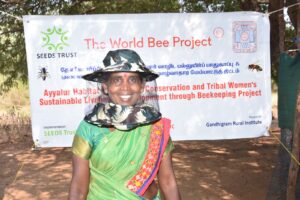
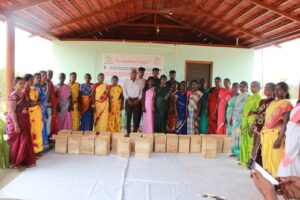
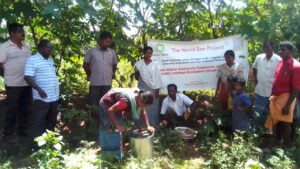
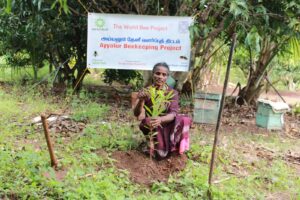
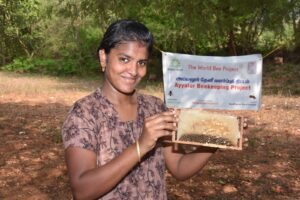
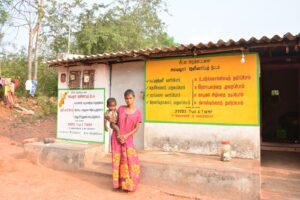
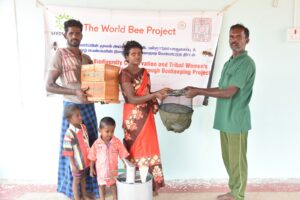
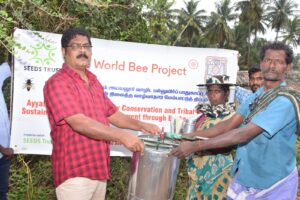
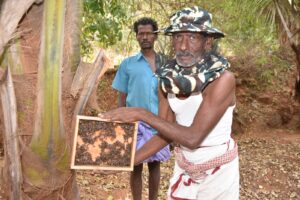
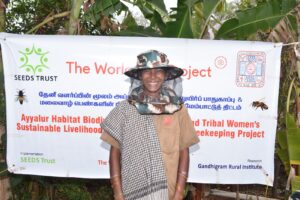
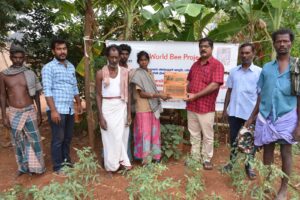
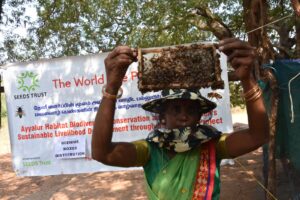
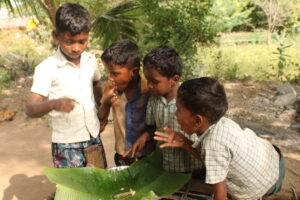

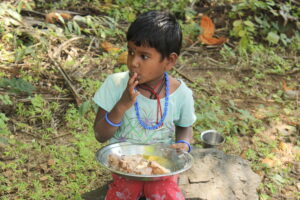
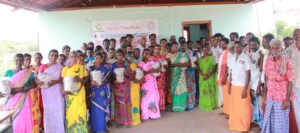
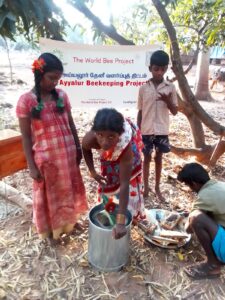
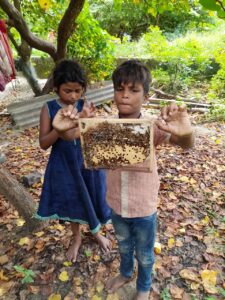
MANGROVE BEEKEEPNG PROJECT
The World Bee Project (TWBP), UK has agreed to support a 3 year project (2022-2024) for ”Pandiyar Mangrove Wetlands Ecosystem Conservation and Additional Livelihood Development through Beekeeping for Fisherwomen” in 10 villages of Pandiyar river estuary, Kannyakumari district, Tamil Nadu, India. The project aims to enhance the livelihood of 40 fisher women through bee keeping and biodiversity conservation. The project also envisages a research component for productivity enhancement of agricultural crops through pollination services.
The Project activities are planned for 3 years. 10 villages of the project area will be selected. Each year 40 fisherwomen will be selected for the activities from these 10 villages, covering 40 fisherwomen in 3 years. Each woman will be provided with 5 beehives each. 600 beehives with accessories will be distributed fisherwomen in 3 years. 6000 plants with nectar yielding flowers will be planted (@50 plants per beneficiary x 40 women per year by distributing 2000 seedlings per year).
Project Achievements (January 2022 to December 2022)
1. The orientation meeting on Apiculture as a source of ecosystem restoration and livelihood enhancement and mode of implementation of the project in mangrove areas was given to the project team members.
2. From the 10 villages, 40 beneficiaries were carefully selected who are all keen to rearing honeybees and adopting technologies pertaining to apiculture and honey production.
3. The data related to the socio-economic condition parameters, knowledge on honeybee rearing and honey collection, value addition of honey and role of honeybee in ecosystem restoration of the 40 selected beneficiaries were collected through a schedule prepared for the purpose in the local language.
4. Skill training on honeybee rearing, honey production was conducted to the 40 beneficiaries.
5. Beehives and accessories were distributed to the 40 beneficiaries.
6. Due to strong wind and intermittent rains, honey production was hampered. Only 250 to 500 gm of honey was produced per hive till June. From July to December, the honey production is very low due to adverse climate.
7. 2000 seedlings of various plant species were planted in and around the household during October 2022.
8. The floral chart suitable for enhancing the resource for honeybee foraging is prepared.
